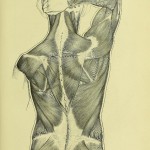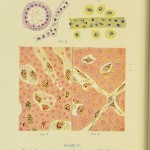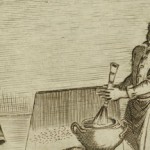The UK Medical Heritage Library made the 19th century history of medicine freely available to all as an open collection under Creative Commons licence. Over15 million pages of 19th Century medical texts were digitised and made available via JIsc Historical Texts, the Internet Archive and the Wellcome Digital Library.
The history of medicine is a very broad subject area and items were included about medical sciences, consumer health, sport and fitness, diet and nutrition and historical medical practices such as phrenology and hydrotherapy.
The Wellcome Library contributed its 19th century collections to the UK Medical Heritage Library, along with nine partner institutions:
- Royal College of Physicians of London
- Royal College of Physicians of Edinburgh
- Royal College of Surgeons of England
- UCL (University College London)
- University of Leeds
- University of Glasgow
- London School of Hygiene & Tropical Medicine
- King’s College London
- University of Bristol
The project was funded by Jisc and the Wellcome Library. It has significantly extend the digital collections of the US Medical Heritage Library, a consortium of American medical libraries.
Visualising Medical History
A separate project made the collection available on Jisc Historical Texts where, alongside traditional means, users can use data visualisations to access and interpret the texts. More information about using the tools can be found on the help pages of the HIstorical Texts website.
Project rationale
The rationale for using data visualisations to access the UK MHL came out of discussions with the Academic Advisory Group assigned to the project. They noted that when making such a large corpus available digitally it raises some important questions:
- When millions of digitised pages sit “behind a keyword search box” how does a student make sense of the full extent of what is available?
- Lacking the visual clues and serendipity that a traditional library set-up provides, how can teachers convey the broader context in which this literature was produced?
- How can digital technology stretch the traditional way of “searching” content and support the identification of key concepts, themes and connections within the digitised texts?
- How do scholars sift through and prioritise long lists of search results that may have been generated through more traditional searches?
- How do they account for OCR imperfections?
- And how can the interaction between text and images be represented, and the integrity of texts kept?
You can also look at information about the project under the #ukmhl hashtag on Twitter.
Here are also some past blog posts from the UKMHL project for further information:
- Medical insights
- Glasgow and its 19th century medical innovations
- Digitisation of Leeds’ Cookery and Health Sciences Historical Collections
- The London School of Hygiene & Tropical Medicine collection goes digital
- New Jisc commission to Visualise Medical History
- Visualising Medical History Invitation to Tender now live



